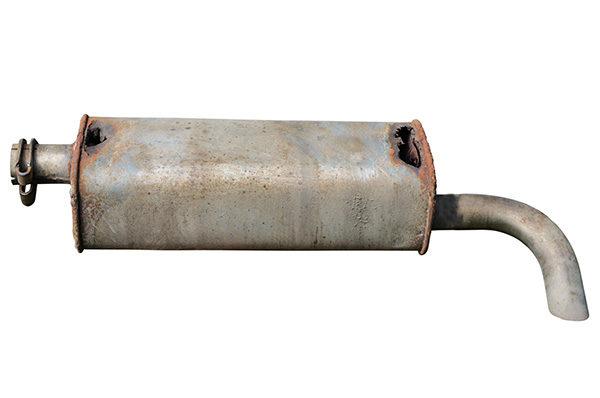
You know your car’s normal sounds—how it idles, hums at cruising speed, or gently roars when you step on the gas. So when the exhaust suddenly sounds louder, raspier, or just... off, it grabs your attention. Maybe it’s a deeper growl, maybe a harsh rattling. Either way, it’s not something to ignore.
An unusually loud exhaust can point to several issues—some minor, some serious. Here’s a breakdown of what could be causing the noise and why it’s worth checking out sooner rather than later.
Exhaust Leak
One of the most frequent reasons your exhaust might sound louder is a leak somewhere in the system. Exhaust leaks can happen anywhere—from the exhaust manifold all the way to the tailpipe. Over time, heat, moisture, and road salt wear down the metal, leading to small cracks or holes.
If the leak is before the muffler (closer to the engine), it can make your exhaust sound much louder and raw. It may even create a ticking or popping sound, especially during acceleration. Aside from the noise, leaks can let exhaust gases escape where they shouldn’t—like under your vehicle or near the cabin, which isn’t just annoying, but dangerous.
Rust or Corrosion
If your car is more than a few years old—or if you’ve driven a lot of wet or salted roads—rust might be the reason your exhaust is acting up. Components like the muffler, resonator, and pipes can rust through, especially in areas where water tends to collect.
One day the exhaust sounds normal, the next it sounds like a broken lawnmower. That’s often the result of a rusted-out muffler or a pipe that’s cracked open. Even a small hole can dramatically increase noise levels and change the tone of your exhaust.
Loose or Damaged Exhaust Components
It’s not always a hole that causes the sound. Sometimes, the system is just coming apart. A loose exhaust hanger, broken bracket, or worn-out gasket can cause the entire system to vibrate or rattle against the chassis.
That low, metallic rattle you hear at idle or when going over bumps? It could be a section of the exhaust moving around more than it should. This doesn’t always mean major damage, but it can quickly lead to it if left unchecked.
Failing Muffler or Resonator
The muffler and resonator are the parts of your exhaust system that quiet things down. They’re filled with baffles and chambers designed to absorb sound and reduce the noise from combustion. When those components start to break down—whether from age, heat, or corrosion—they lose their ability to muffle the sound effectively.
If your car suddenly sounds like you installed an aftermarket exhaust system (and you didn’t), your muffler might be on its way out.
Cracked Exhaust Manifold
At the front end of your exhaust system is the exhaust manifold. It collects the gases from each cylinder and directs them into the exhaust pipe. Cracks in the manifold or broken bolts can create leaks that sound like ticking, tapping, or hissing—especially on startup or under acceleration.
It’s a more common issue in higher-mileage vehicles or cars that have seen repeated hot-and-cold cycles, like stop-and-go driving in Oregon weather.
Catalytic Converter Issues
A clogged or damaged catalytic converter can also change the way your exhaust sounds. In some cases, it creates a whistling noise; in others, it might produce a deep rattling sound if the internal honeycomb structure has broken apart.
A failing converter won’t just make your exhaust louder—it can affect engine performance, trigger the check engine light, and reduce fuel efficiency. If your car sounds off and feels sluggish, this could be the problem.
Why It’s Best Not to Wait
Driving with a loud exhaust isn’t just unpleasant—it can be dangerous. Carbon monoxide from exhaust leaks can make its way into the cabin, especially if your windows are up or if the leak is near the engine bay. Not to mention, a compromised exhaust system can throw off your vehicle’s fuel-air balance and cause engine misfires or reduced performance.
If you’re hearing unusual sounds, don’t wait for it to get worse. Catching an issue early often means a quick and affordable fix. Waiting too long can lead to more costly repairs—or worse, a system that fails entirely while you're driving.
Precision Import Repair – Exhaust Inspections in Hillsboro, OR
At Precision Import Repair in Hillsboro, OR, we diagnose and repair all types of exhaust issues—from minor leaks to full system replacements. If your vehicle’s sound has changed, gotten louder, or just doesn’t feel right, our team is here to help. Bring your car in for a quick inspection and let us get you back to quiet, safe driving.